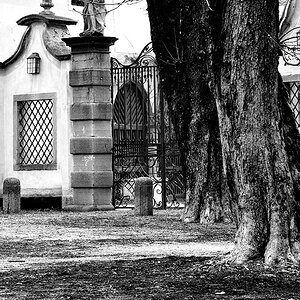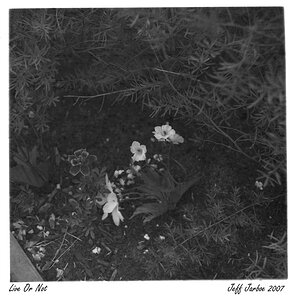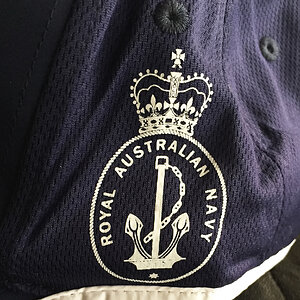Rseider
TPF Noob!
- Joined
- Mar 29, 2018
- Messages
- 9
- Reaction score
- 4
- Location
- Upstate NY
- Website
- www.facebook.com
- Can others edit my Photos
- Photos NOT OK to edit
Hey there!
So, I've recently set up a shootproof account. I'm on my trial right now but will be paying to continue to use it soon. I've found it to be pretty great....ANYWAY....
I would consider myself an Advanced Photographer (I own a Canon EOS 7D and several pieces of photography equipment fyi but I know the equipment does not make the photographer). I'm not sure the difference between Advanced Photographer or a professional really. It's got to be more than just taking photos for work. I do have a minor in photography and have been taking photographs for 12 years. More high quality for the last 6 or 7 as I've gotten better and minored in photography in college.
SO...here I am asking for tips on how to run myself a freelance photography business. That means, no physical location and just here and there. I'm not interested in doing photography for a set amount of hours per week as, for me, it would take the fun out of it.
What I would like to know is:
1. Help pricing prints via shootproof. How much is too much for say a 4x6 or an 8x10 print? And will people even buy them if I were to make the digitals free?
2.I want to charge a rate per hour for photo sessions like portrait sessions. I have a portrait session coming up. Suggestions on rate/hour for an Advanced Photographer (I don't necessarily feel comfortable charging professional rates)? I was thinking somewhere between $60 to $100. Not sure if that's too much or too little? I would be charging for the time to take the photos and then (although would be unwritten in the contract) the time it takes to edit them and upload them and all. So I am aware that one hour could turn into two or three hours of work (which is really what I'm charging for).
3. Tips for contracts? I found what I think to be a good one for portrait photography at this link:
Portrait Photography Agreement - Free Sample Contract
I tailored it a bit to include gas reimbursement (as per the going rate in the state I work in) and other advanced expenses.
4. Should pricing differ based on the type of photography? Like, say for example, photographing humans is easier than photographing animals. So, would it be fair to ask for more to say, photograph someones pets/them with their pets? After all, not all pets can be controlled (especially cats). Or like say, doing an event (party, wedding, etc.) instead of just a portrait session?
If seeing some of my work would help you please go to my Facebook page (that's where most of my work is): Rachael Seider Photography
OH...and if it helps:
I don't have backdrops or lighting. I have my Canon EOS 7D, a wide angel lens, and a telephoto lens. Then some macro attachments including light ring and such. And some filters. The list goes on. But what I'm saying, for example, is that with portrait photography I don't have a studio or studio equipment. That means photographing people basically anywhere. Should that effect the price?
Thank you for taking the time to read!!! I know it's a lot. I am really hoping to benefit from someones advice or comments here. Thanks in advance!
So, I've recently set up a shootproof account. I'm on my trial right now but will be paying to continue to use it soon. I've found it to be pretty great....ANYWAY....
I would consider myself an Advanced Photographer (I own a Canon EOS 7D and several pieces of photography equipment fyi but I know the equipment does not make the photographer). I'm not sure the difference between Advanced Photographer or a professional really. It's got to be more than just taking photos for work. I do have a minor in photography and have been taking photographs for 12 years. More high quality for the last 6 or 7 as I've gotten better and minored in photography in college.
SO...here I am asking for tips on how to run myself a freelance photography business. That means, no physical location and just here and there. I'm not interested in doing photography for a set amount of hours per week as, for me, it would take the fun out of it.
What I would like to know is:
1. Help pricing prints via shootproof. How much is too much for say a 4x6 or an 8x10 print? And will people even buy them if I were to make the digitals free?
2.I want to charge a rate per hour for photo sessions like portrait sessions. I have a portrait session coming up. Suggestions on rate/hour for an Advanced Photographer (I don't necessarily feel comfortable charging professional rates)? I was thinking somewhere between $60 to $100. Not sure if that's too much or too little? I would be charging for the time to take the photos and then (although would be unwritten in the contract) the time it takes to edit them and upload them and all. So I am aware that one hour could turn into two or three hours of work (which is really what I'm charging for).
3. Tips for contracts? I found what I think to be a good one for portrait photography at this link:
Portrait Photography Agreement - Free Sample Contract
I tailored it a bit to include gas reimbursement (as per the going rate in the state I work in) and other advanced expenses.
4. Should pricing differ based on the type of photography? Like, say for example, photographing humans is easier than photographing animals. So, would it be fair to ask for more to say, photograph someones pets/them with their pets? After all, not all pets can be controlled (especially cats). Or like say, doing an event (party, wedding, etc.) instead of just a portrait session?
If seeing some of my work would help you please go to my Facebook page (that's where most of my work is): Rachael Seider Photography
OH...and if it helps:
I don't have backdrops or lighting. I have my Canon EOS 7D, a wide angel lens, and a telephoto lens. Then some macro attachments including light ring and such. And some filters. The list goes on. But what I'm saying, for example, is that with portrait photography I don't have a studio or studio equipment. That means photographing people basically anywhere. Should that effect the price?
Thank you for taking the time to read!!! I know it's a lot. I am really hoping to benefit from someones advice or comments here. Thanks in advance!



![[No title]](/data/xfmg/thumbnail/42/42058-8597ac0f687fb4007aa3ca0210936f04.jpg?1619739994)
![[No title]](/data/xfmg/thumbnail/31/31041-5783ca3812325c3201a2dd513def662d.jpg?1619734584)








![[No title]](/data/xfmg/thumbnail/39/39500-340f9581ccea2902f4cca7c656232f9e.jpg?1619739057)